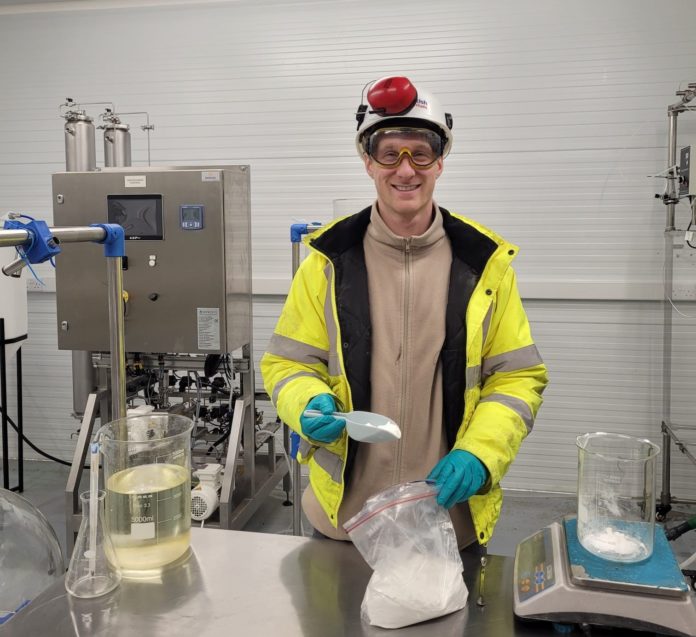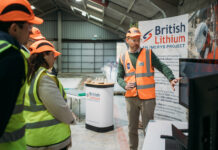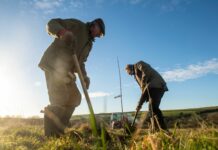In what is believed to be a world first, British Lithium has produced lithium at pilot scale from the mica in granite in its new pilot plant near Roche.
Funded by Innovate UK, the pilot plant has taken just seven months to design and build and uses patented technology in a sustainable production process.
The pilot plant design is based on four years’ intensive research and development and is the latest milestone in British Lithium’s progress towards full operational status. All UK car manufacturing will convert to electric vehicles by 2030 and lithium carbonate is a key component in the batteries required to power them.
The company’s pilot plant approach incorporates all processing stages – from quarrying through to high purity lithium carbonate production. This includes crushing, grinding and beneficiating the ore, custom-built electric calcination at low temperatures, acid-free leaching and multiple purification steps that include ion-exchange.
“New processes are normally piloted during the definitive feasibility stage but, as lithium has never been produced commercially from mica before, de-risking our proprietary technology is an important step in developing our project,” said chief executive Andrew Smith.
“Doing it now allows us to operate in real world conditions using actual site water and locally sourced commercial reagents. We’re delighted with the rapid progress we’ve made, but there’s still a long road ahead in terms of refining and optimising the process.”
British Lithium will be manufacturing 5 kilograms of lithium carbonate per day from early this year in its pilot plant – enough to demonstrate its commercial value to customers. Once the process is fully developed, work will begin on building a full-scale plant.
“Our goal is to produce 21,000 tonnes of battery-grade lithium carbonate each year,” added British Lithium chair Roderick Smith. “At the moment, we will be the only lithium producer in the world to be quarrying and refining on one site, which adds to the sustainability of the project.
“The support we’ve had from Innovate UK, government departments, Cornwall Council and a range of key stakeholders has been vital, and we look forward to considerably ramping up our operations over the next two or three years.”








